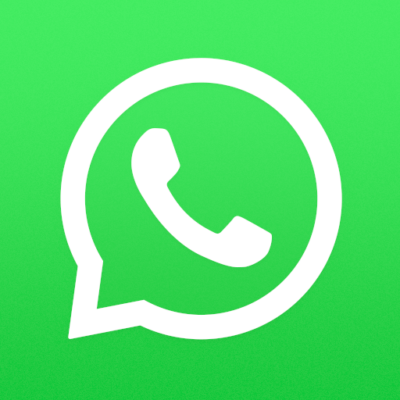Signal and WhatsApp are two of the most popular messaging apps available, each with its own set of unique features and capabilities. In this comprehensive comparison, we will delve into the key aspects of both Signal and WhatsApp to help you understand their similarities and differences. From security and privacy to user base, features, ownership, and availability, we will explore every aspect to determine which one is better in each category. By the end of this article, you will have a clear understanding of which messaging app reigns supreme in terms of security, user base, features, ownership, and overall availability. So, if you have ever wondered which app is the best choice for your messaging needs, this comparison will provide the insights you need to make an informed decision. Let’s dive into the world of Signal and WhatsApp to uncover which one stands out as the ultimate messaging app.

What Are Signal and Whatsapp?
Signal and Whatsapp are both popular instant messaging apps used for communication, but they differ in various aspects such as security, features, and user base.
Signal has gained attention for its strong emphasis on privacy and end-to-end encryption, making it a popular choice among users who prioritize security.
On the other hand, Whatsapp boasts a larger user base and a wide range of features including group chats, voice calling, and multimedia sharing. This difference in user base often influences the choice between the two platforms, with Signal attracting privacy-conscious individuals and Whatsapp remaining a top choice for those seeking a seamless and feature-rich messaging experience.
What Are the Similarities Between Signal and Whatsapp?
Signal and Whatsapp share several similarities as messaging platforms, including the ability to send text, voice, and video messages, as well as support for group chats and multimedia sharing.
What Are the Differences Between Signal and Whatsapp?
While Signal and Whatsapp offer similar messaging functionalities, they differ significantly in terms of security protocols, privacy standards, and user base demographics.
Security and Privacy
The security and privacy features of Signal and Whatsapp are crucial differentiators, with Signal being known for its robust end-to-end encryption, stringent data protection, and minimal collection of metadata, while Whatsapp follows suit with encryption protocols but differs in its approach to user privacy and metadata handling.
Signal’s end-to-end encryption ensures that only the sender and recipient can access the content of the messages, offering a high level of security and privacy. Signal stores minimal metadata, such as the date and time a user registered their account, while prioritizing user anonymity.
On the other hand, Whatsapp employs similar encryption standards, but its data privacy approach involves the collection of certain metadata for service optimization and targeted advertising. Both platforms allow users to adjust privacy settings, but Signal’s commitment to minimal data collection sets it apart in the realm of privacy-centric messaging apps.
User Base
The user bases of Signal and Whatsapp exhibit distinct characteristics, with Whatsapp boasting a larger international user adoption and higher user engagement, while Signal maintains a dedicated user base known for its active involvement and valuable feedback.
Signal, although smaller in user numbers compared to Whatsapp, has garnered a niche user base known for its strong engagement and active participation in providing feedback. Its user demographics often include tech-savvy individuals, privacy enthusiasts, and those particular about secure communication.
On the other hand, Whatsapp, with its broad international reach, has achieved widespread adoption, catering to a diverse user base across different regions and demographics. The level of user involvement and feedback in both platforms reflects their unique appeal in the global messaging landscape.
Features
In terms of features, Signal and Whatsapp offer a diverse range of functionalities, including voice messaging, multimedia sharing, group chat options, and user-friendly interfaces, yet with distinctions in multimedia storage and overall user experience.
Signal‘s voice messaging feature allows users to record and send audio messages easily, while Whatsapp also provides this functionality with an intuitive interface.
When it comes to multimedia sharing, Signal supports high-quality file sharing with end-to-end encryption, ensuring privacy, whereas Whatsapp users experience seamless multimedia sharing but with slightly compressed media due to its backup limitations.
Both platforms offer group chat options, but Signal‘s group admin controls are more customizable, enhancing user experience.
Signal‘s focus on privacy translates to a more secure and user-oriented platform, making it stand out in terms of overall user experience and multimedia storage.
Ownership
The ownership and management structures of Signal and Whatsapp influence aspects such as user control, privacy settings, software updates, and platform compatibility, with each platform offering distinct approaches to these critical elements.
For instance, with Signal, being a non-profit organization, its ownership model is primarily focused on safeguarding user privacy and control. It prioritizes user data protection and provides open-source code for transparency. In contrast, Whatsapp, as a subsidiary of Facebook, faces concerns regarding data monetization and targeted advertising. This impacts user privacy settings and control. Differences in ownership influence the platforms’ software update frequency and their compatibility with various operating systems and devices.
Availability
The availability of Signal and Whatsapp across different operating systems, including mobile and desktop platforms, influences their accessibility and technical support, with each platform catering to varied user preferences and needs.
These messaging apps are compatible with iOS, Android, and Windows, ensuring seamless communication across diverse devices. Users can access Signal and Whatsapp not only on their smartphones but also through dedicated desktop applications. This cross-platform compatibility enhances the accessibility of these popular apps, allowing users to stay connected regardless of the device they are using.
Both Signal and Whatsapp provide robust technical support, with extensive FAQs, user forums, and responsive customer service channels, ensuring that users receive timely assistance across various operating systems.
Which One Is Better for Security and Privacy?
When comparing Signal and Whatsapp for security and privacy, Signal emerges as the frontrunner due to its stringent privacy standards and strong user trust, although Whatsapp also provides robust security measures, the comparative advantage of Signal is in its user privacy assurances and data protection.
Signal’s commitment to end-to-end encryption and minimal data collection sets it apart from Whatsapp, which has faced scrutiny in the past for its data sharing practices. Signal’s open-source platform allows for greater transparency and community review, fostering a sense of trust among its users. While Whatsapp has made strides in enhancing its security features, Signal’s unwavering dedication to protecting user privacy cements its position as the preferred choice for those prioritizing data security and confidentiality.
Which One Is Better for User Base?
In terms of user base, Whatsapp holds an edge with its widespread user adoption, active involvement, and high user satisfaction, making it a preferred choice for those seeking a broad and engaged user community, although Signal‘s dedicated user base also demonstrates high involvement and satisfaction levels.
Signal‘s proactive approach to user privacy and security has attracted a niche but loyal following, with users lauding its commitment to safeguarding their personal information.
On the other hand, Whatsapp‘s extensive feature set, seamless integration with other Facebook-owned platforms, and large user pool have positioned it as a versatile and convenient communication tool. This distinct appeal draws in users looking for simplicity and interconnectedness with their social network, adding to Whatsapp‘s extensive user base and continued user engagement.
Which One Is Better for Features?
When it comes to features, both Signal and Whatsapp offer compelling options, with Signal excelling in user interface design and messaging features, while Whatsapp stands out for its seamless multimedia sharing capabilities, making the choice between them dependent on specific feature preferences.
Signal’s user interface design is known for its minimalistic and intuitive layout, allowing for easy navigation and a clutter-free experience.
In contrast, Whatsapp boasts a wide array of multimedia sharing capabilities, enabling users to effortlessly share photos, videos, documents, and even live location information.
While Signal focuses on secure and private messaging, Whatsapp offers a comprehensive set of functionalities for a more diverse range of user needs.
Which One Is Better for Ownership?
Signal and Whatsapp have distinct ownership models that can be assessed and compared in terms of user control features, verification processes, and advantages in providing ownership flexibility and user verification ease.
With Signal, users have full control over their data and can decide whom to share it with, aligning with its commitment to privacy and security. In contrast, Whatsapp’s ownership model emphasizes user convenience, offering integration with the wider Facebook ecosystem.
Both platforms prioritize user verification, with Signal’s registration process focusing on privacy, while Whatsapp leverages phone number verification for simplicity. These unique approaches cater to different user preferences and highlight the varied benefits each platform provides in empowering users with ownership control and seamless verification.
Which One Is More Widely Available?
In terms of availability, Whatsapp holds a wider reach and cross-platform integration, making it more accessible for media sharing and user interaction across different devices and operating systems, although Signal also offers robust availability and cross-platform functionalities.
Signal’s availability extends to various platforms, including iOS, Android, and desktop, ensuring a seamless communication experience for users. Signal’s commitment to privacy and security has gained traction among users seeking a more secure messaging platform.
On the other hand, Whatsapp‘s widespread usage and seamless integration with other Facebook-owned platforms provide a comprehensive ecosystem for users to connect and share diverse media types effortlessly. Each platform showcases unique strengths, catering to diverse user needs and preferences in the realm of messaging and media sharing.








Comments closed.